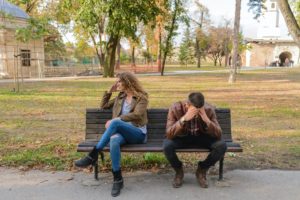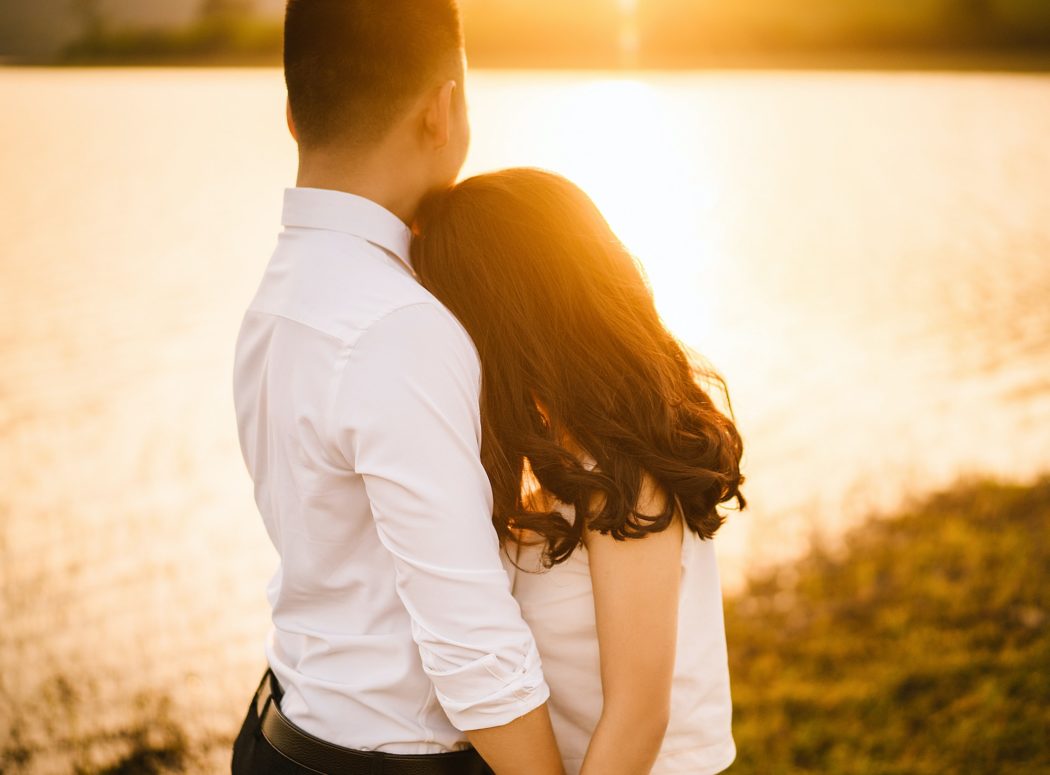Relationship and spiritual writer, Sheleana Aiyana, discusses how her experiences with abandonment and addiction helped her discover the advantages of conscious relationships, which she now shares with millions of people through her website, Rising Woman.
“Conflict is an opportunity for us to get to know our partner deeper, for us to learn how to get our needs met in a really honouring way.” – Sheleana Aiyana.
As a child, Sheleana grew up in and out of foster homes where she struggled with abandonment, addiction and abuse. Without a father present and a concept of what made a healthy relationship, Sheleana developed a fear for men and became naturally drawn to unsafe partners.
 But during her divorce in her early 20s, Sheleana had a spiritual awakening that changed her life. She discovered how much she had been denying and suppressing her grief and childhood wounds and decided to make a change.
But during her divorce in her early 20s, Sheleana had a spiritual awakening that changed her life. She discovered how much she had been denying and suppressing her grief and childhood wounds and decided to make a change.
“I was in so much pain,” Sheleana says, “I was struggling with this abandonment wound that had been ripped open and I never want to feel that powerless or that out of control ever again. I felt so much pain in my body that I thought I’d die in my sleep.”
But through a range of spiritual teachings such as plant medicine, ancestral and shadow work, Sheleana turned her life around and now teaches millions of people every month about the benefits of self-awareness, reclaiming their true nature and having conscious relationships.
What is a conscious relationship?
“A conscious relationship is simply the act of witnessing our behaviours and noticing our stories. It’s noticing our minds rather than believing every thought we think,” Sheleana explains.
“We’re no longer seeing our partner as somebody who is designed to meet all our needs and do the things the way we want them to but instead they are there as a partner in life, an ally in our healing.”
In a conventional relationship, if someone triggers you it’s automatically something they did wrong and there’s something that person has to do in order to fix you. Whereas in a conscious relationship you’re wholly responsible for yourselves, you’re there to support your partner not to fix them.

Often in relationships, we become co-dependent on our partner, which can be dangerous for our health and wellbeing.
Whether it’s from getting into the pattern of caretaking or putting others needs before our own, it’s crucial to remember we’re not responsible for saving other people.
“I think one of the most beautiful gifts we can give people when they’re suffering or struggling, is to remind them of their own power and that we trust them to do the work and heal,” Sheleana explains.
“It allows us to create strong boundaries with ourselves and put our care and our own primary needs at the forefront because otherwise, we’re just self-abandoning.”
When we self-abandon, we don’t trust ourselves nor do we identify our boundaries or listen to our inner needs.
One could have a dream that’s really important to them to complete only to self-abandon it because it doesn’t work for someone else.
To avoid this, Sheleana says one could ask themselves the deeper question about what that person represents for you and how together, you can heal.
“It comes down to having a compass where you know what your boundaries are as well as what your non-negotiable red flags are,” she says.
Classic, conventional relationships can be viewed in a way that tells us that somebody has to right and somebody has to be wrong, or somebody has to win, and someone has to lose.

We believe flighting, and not seeing eye to eye on things is normal because we weren’t taught otherwise. What we’ve failed to understand though, is that conflict presents the opportunity to learn more about yourself and your partner.
“If we know what we want in the relationship and we can speak that out, then we can actually qualify people before getting into a deep relationship,” Sheleana explains.
“My husband and I had a lot of these conversations before we got together. We wrote letters, we revealed our traumas to each other and shared our life stories. We qualified what kind of relationship we wanted and what we needed to get there.”
While relationships can be difficult, seeking support doesn’t mean you’re failing but rather seeking an opportunity to improve and there are a lot of great support systems out there.
“Work with a teacher, therapist or somebody who’s aligned with your spiritual believes and makes you feel safe. I think it’s also really important to experiment with different healing modalities and find out what feels good for you,” Sheleana says.
“There doesn’t need to be shame when you turn over a stone and there doesn’t need to be shame when you go into the dark. It’s about reclaiming and really owning who are and accepting all your parts.”
If you enjoyed this article and would like to learn more about Sheleana Aiyana and her work, you can watch Wellspring’s exclusive interview with her on our YouTube channel.



